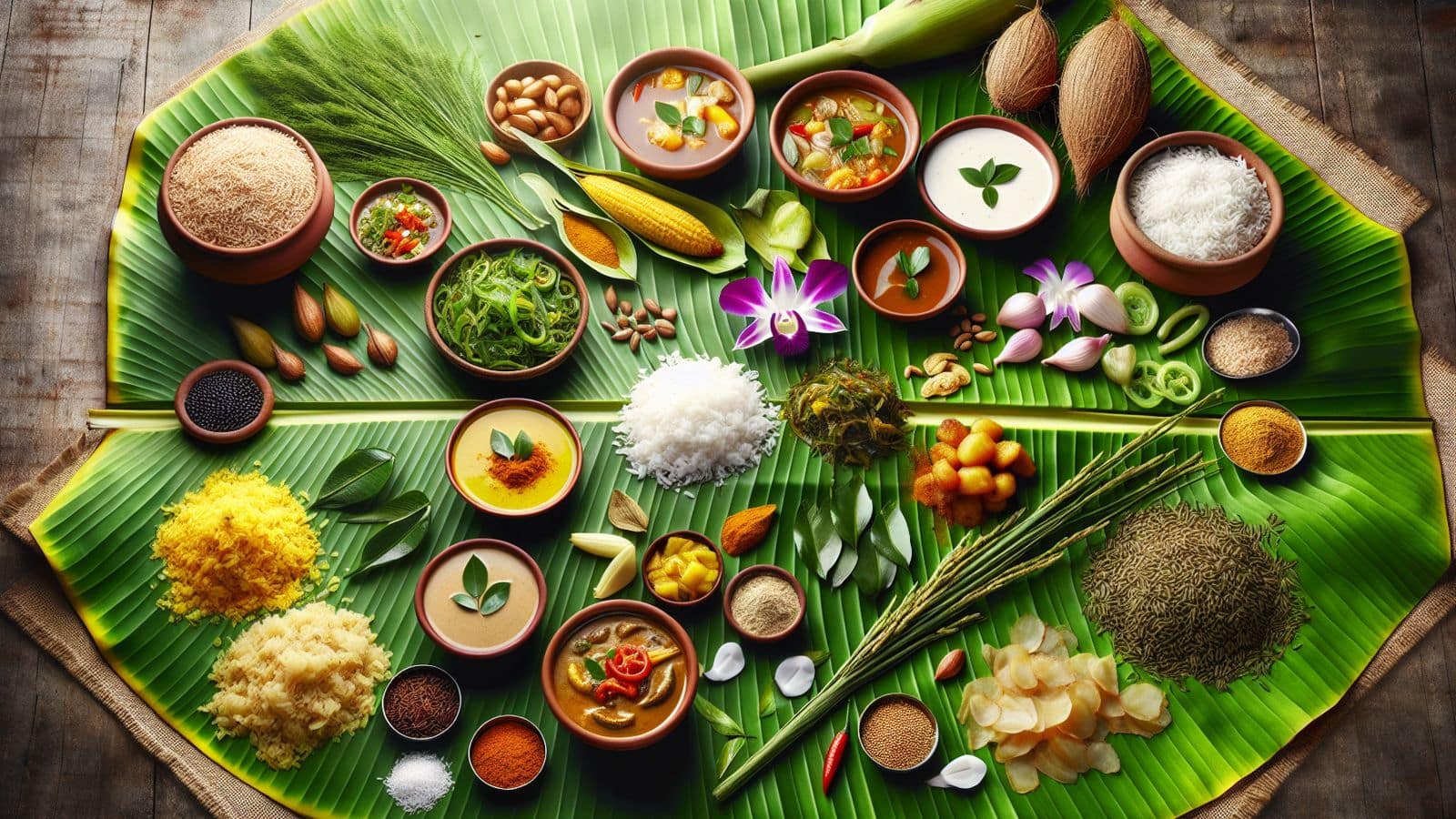
Essential Kerala Sadya ingredients
What's the story
Kerala Sadya is a traditional feast from Kerala, India, featuring a vegetarian spread on banana leaves. It includes an array of dishes rich in flavor and steeped in tradition, known for its unique blend of spices, coconut, rice, and various vegetables. These five staple ingredients are essential for creating an authentic Sadya experience, perfectly capturing the essence of this rich culinary tradition.
Ingredient 1
Coconut: The creamy delight
Coconut is an essential element in Kerala cuisine. Both grated coconut and its milk are extensively utilized to enhance the richness and texture of various dishes, including a vial and thoran. Additionally, coconut oil is a favored cooking medium, imparting a unique aroma to the food. Its consumption offers health benefits, such as providing good fats that are beneficial for cholesterol management.
Ingredient 2
Rice: The base of every feast
Rice forms the foundation of every Sadya meal, with boiled rice prominently served as the central dish. It comes in various types, including the nutritious red rice or the aromatic basmati. Essential for providing carbohydrates, rice acts as an ideal base, skillfully absorbing the rich flavors of accompanying curries such as sambar and rasam, enhancing the overall dining experience.
Ingredient 3
Curry leaves: Aromatic foliage
Curry leaves are a vital component in Kerala cuisine, infusing dishes with their distinctive fragrance and a subtle hint of citrus. These aromatic leaves are commonly used for tempering dishes like dals or chutneys. When fried in hot oil, they release their full flavor profile. Beyond their aroma, curry leaves are also valued for their health benefits, being rich in iron and antioxidants.
Ingredient 4
Mustard seeds: Tiny spice titans
Mustard seeds, though small, are mighty in adding heat and pungency to Kerala dishes. These seeds are primarily used in tempering, where they splutter in hot oil before being mixed into various dishes, thereby enhancing both flavor and texture. Beyond their culinary use, mustard seeds offer health benefits due to their anti-inflammatory properties, making them a beneficial addition to the diet.
Ingredient 5
Tamarind: Sour powerhouse
Tamarind, a vital ingredient in Kerala cuisine, adds a tangy kick to specialties such as Pulissery or Tamarind Rice. This sour fruit is soaked in water, and its extract is utilized as a base for sauces or directly mixed into vegetable preparations. Besides its culinary uses, tamarind aids digestion and acts as a natural laxative, offering both flavor enhancement and health benefits.